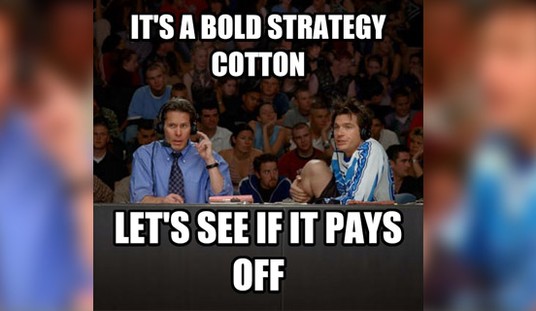Current Democratic presidential candidate Pete Buttigieg (and former candidate Beto O’Rourke) announced they were both all-in on the New York Times’ 1619 Project, “a major initiative” by the New York Times Magazine that seeks to examine American history as if it began in 1619, the year the first slave ship arrived in Virginia.
The 1619 Project has had its share of criticism, though. National Review’s Jim Geraghty noted right away that a number of black historical figures were overlooked, from the Tuskegee Airmen to Harriet Tubman to Jesse Owens and Jackie Robinson. “In the reframing of the 1619 Project,” he tweeted, “African-American success stories disappear.”
Civil War historian James McPherson was recently interviewed about the 1619 Project and noted that it “focused so narrowly on that part of the story [American racism] that it left most of the history out. So, of course, it’s been distributed to schools as a glossy magazine and has been adopted by some into the curriculum.
Now, five historians have written a letter to the New York Times asking that it publish “prominent corrections of all the errors and distortions presented” in the 1619 Project.
This is astonishing. https://t.co/6N2htXJVKz
— PEG (@pegobry) December 21, 2019
In some ways it’s actually good. This is an official statement by the NYT that they no longer consider facts relevant to their reporting. Falsehoods will no longer be corrected if they are in support of progressive ideology. Glad they put it on the record!
— PEG (@pegobry) December 21, 2019
In a very lengthy reply to the five historians, the Times suggested it wouldn’t be printing any corrections:
Recommended
The project was intended to address the marginalization of African-American history in the telling of our national story and examine the legacy of slavery in contemporary American life. We are not ourselves historians, it is true. We are journalists, trained to look at current events and situations and ask the question: Why is this the way it is? In the case of the persistent racism and inequality that plague this country, the answer to that question led us inexorably into the past — and not just for this project….
…
As the five letter writers well know, there are often debates, even among subject-area experts, about how to see the past. Historical understanding is not fixed; it is constantly being adjusted by new scholarship and new voices. Within the world of academic history, differing views exist, if not over what precisely happened, then about why it happened, who made it happen, how to interpret the motivations of historical actors and what it all means.
In other words, there’s a preconceived narrative that transcends historical facts.
This is more a clear declaration of what many of us have known for a while.
Some horrid combination of hubris and activist spirit has killed off the integrity of their journalism. Bias is present in every article, making the entire thing a chore to read.
— Duro (@Sekhmes) December 21, 2019
The same newspaper that regularly dumps on US and UK voters for being anti-intellectual and not listening to the "experts" when elections don't go their way now insists they know better than the experts. pic.twitter.com/kuLpAKRsIX
— Mark Grabowski (@ProfGrabowski) December 21, 2019
It’s a step above “sources familiar with their way of thinking”, but not by much.
— Then things got murky (@wakeywakey16) December 21, 2019
Narrative Over all.
— Emily Red (@Emily30Red) December 21, 2019
Its like touchy feely Joe said, "truth over facts" https://t.co/PRH8IFEIzw
— Things Will Be Better In The New Building (@thelastnamehere) December 21, 2019
Can the Times fall any further?
— Philo Beddoe (@PhiloBeddoePA) December 21, 2019
Also shows a changing of guard in academia.
Moderate libs are aging out.
NYT editor cites older New Left historians & younger scholars of race.
Woke academy creates race propaganda, woke @nytimes distributes.
Do they want race war? Or just angry clicks?
— Jason Ross (@Jason_C_Ross) December 21, 2019
Can the NYT’s response fairly be summarized as “we are not historians, we are journalists, and as journalists we are better able to frame historical questions and decide which historical facts most matter than any historian”? The response strikes me as both arrogant and fatuous.
— Dante Inflagrante (@elodin8) December 21, 2019
I think it was more, "historians may disagree, but we'll go with the one who fits our narrative, and the rest of you can go pound sand."
— The FBI Knew All Along That Carter Page Was CIA (@TrumpGoldenAge) December 21, 2019
And present it as objective scholarship, the real history, the true founding. That’s the trick. Silverstein basically said that they were engaged in propaganda based on their ideology which is, at least, refreshingly honest.
— Andrew Sullivan (@sullydish) December 21, 2019
Related:
‘It left most of the history out’: A Civil War historian weighs in on the New York Times’ ‘1619 Project’ https://t.co/b1mCMa62ID
— Twitchy Team (@TwitchyTeam) November 26, 2019
























Join the conversation as a VIP Member